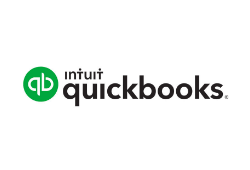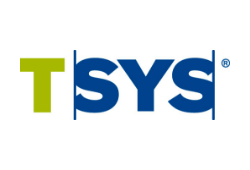Best Credit Card Processing Companies
Cash is out. Credit cards are in. Unless you’re selling peanuts at a football game or managing a lemonade stand, you can’t expect your customers to carry coins and bills to pay for your product. This is especially true when it comes to the sale of luxury items, machinery, or other types of expensive services.
Most customers don’t bother carrying much cash, and depriving them of the option to pay with a card means losing business. So if you want a successful business, you need a credit card processor.
But with so many companies on the market, how do you find the one you can trust with your clients’ money? That’s where we come in.
Best Credit Card Processing Companies for February 2026
Top 5 Credit Card Processing Companies - Our Picks for 2026:
SumUp - Best for no monthly subscription
- Square - Best for fraud protection
- Intuit QuickBooks Payments - Best for software integration
- Helcim - Best for small business companies
- TSYS Merchant Solutions - Best for custom rates
How We Evaluate Credit Card Processing Companies
Each of the financial products we review is carefully examined by our staff. In order to find the companies that are worthy of your attention, we analyzed businesses, conducted several surveys, and compiled a list of important features that every card processing system needs to have to deliver an adequate experience.
Through our own experience and the experience of other small, mid-sized, and major businesses, we’ve come to understand what different companies need in a fully optimized system for these payment methods.
Transaction Fees
Every choice on the market involves some sort of transaction fees. This is how companies earn their money. It’s standard practice for them to expect compensation for the service they provide. However, how they go about getting paid and how much they ask for is where things can get a little fuzzy.
This is a cutthroat industry, and businesses often resort to questionable practices to get ahead of the game. That’s why hidden fees, small print that hits you when you least expect it and costs that you simply didn’t feel like you signed up for, are commonplace.
However, we’ve also noticed that there are a few credit card processing companies that avoid such practices. These businesses won’t try to trick you into paying more than you agreed to, and they won’t put a significant dent into your company’s profits as you attempt to establish a payment system.
Transaction fees are some of the most common, and we’ve mad sure to find firms that offer fair prices and clear terms right from the start.
Another thing we took into consideration is how a company collects its transaction fee. Some firms will have flat-rate charges for each transaction, while some ask for a percentage of each transaction. Neither is better or worse, and business owners’ picks depend on the needs of their companies.
For example, if you sell mostly expensive items, then flat-rate processing is a perfect choice. If you sell a lot of small, cheaper items, then you should probably look for a company that takes a percentage of the transaction.
We outlined how each of the firms on our list collects transaction fees.
Monthly Fees
Monthly fees are another fairly frequent thing to expect. Sometimes companies will offer lower monthly fees in exchange for higher transaction fees. Other times you’ll have low transaction fees and a pricey monthly fee. Again, neither of these is bad.
Companies with higher transaction fees could be perfect for businesses that get less than $5,000 in card sales on a monthly basis and mostly receive cash.
If you own a high-volume business, you might want to find a company that offers lower fees. In addition to transaction charges and monthly costs, we suggest you also check whether the provider charges termination fees.
Equipment
This is another cost you’ll have to consider when choosing the right solution for your business needs. To process cards, you’ll need specialized card processing equipment, and this can often amount to hundreds of dollars in costs.
Some major credit card companies will rent out the needed systems or give you discounts on purchases. Others will make the equipment available for free. Be wary of those who give you equipment for free — this usually means they’ll have higher transaction fees or monthly fees than the rest.
You’ll have to do some calculations to figure out whether this type of company will make payment operations easier and boost your profits in the long run.
eCommerce Support
What’s a retailer without a webpage and an online payment method? Practically invisible. If you want to accept payments online, you'll need solutions that take eCommerce into account.
Most of the companies we examined offer great brick-and-mortar equipment for retailers, but we’ve also found plenty that give you online payment options that you can incorporate into your website.
Mobile Payments
The world is becoming more mobile with each passing day. People want to shop for things on the go, and credit card processors generally make sure that all their online payment systems allow for complete mobile optimization.
The satisfaction of your customers is likely to take a hit if they can’t make purchases through your website with their handheld devices. To gain their trust and present yourself as a fully-professional, modern company, you simply need a mobile payment option.
Terms and Conditions
We always examine the small print for you. The concept of processing credit and debit card payments is often complicated to explain, and a lot of companies feed off this. They work with small business owners who are not familiar with the costs, adding unnecessary fees that go unnoticed until you start using their credit card systems.
During our research, we’ve noticed that a lot of companies simply don’t disclose all of the features and elements to customers. We decided to exclude those names — every business owner deserves to know exactly what they’re signing up for, regardless of their financial knowledge. Every company on our list fully checks out and can be trusted.
Ease of Use
If you have to organize a seminar just to train your employees to use a payment system, you are allocating time and resources that could be used in a far more effective manner. Everything should be easy and straightforward — if users can’t figure it out quickly or require special training, we’ll be sure to point it out.
This is particularly true for brick-and-mortar stores or businesses that need to install a lot of payment terminals. Market leaders offer easy-to-use equipment that doesn’t require constant servicing to function.
Additional Features
We will point out any special features that these companies have to offer. These special features often separate one company from another and can be very helpful if you need something more specific.
Things like virtual terminals, point-of-sale (POS) solutions, or web hosting will all be marked in our reviews, so you can easily pick the company that provides the exact features you need to run everything successfully.
Customer Service
Customer service is extremely important. You’ll want to look for companies that offer 24/7 assistance and can be contacted by phone. If there’s a hitch in processing, you need someone that you can contact immediately.
We also made sure to check out the BBB rating with the Better Business Bureau, while examining online reviews from regular customers who interacted with these companies and their processing systems.
Detailed Reviews of Credit Card Processing Companies
SumUp

Choose if you’d like to pay for transaction fees only rather than committing to a monthly subscription.
Overview
SumUp was founded a decade ago, in 2012. The founders’ main goal was to help startups grow by offering financial services suitable for them.
They decided to do this due to an observation that many credit card processing companies solely cater to large businesses. According to the company, more than three million businesses use its services.
Fees to Expect
SumUp doesn’t offer any monthly subscription plans. Instead, you pay transaction fees. For each in-person transaction, including swipe, chip, and contactless payments, you’ll be charged 2.75%.
When it comes to remote transactions that are carried out through the phone or payment link, the cost is 3.25% + $0.15. What’s great about SumUp is that you may send invoices for free via the SumUp App.
On the other hand, if you wish to pay your invoices online, you’ll need to cash out 2.90% + $0.15.
Additionally, keep in mind that you’ll pay for hardware, as there’s no monthly subscription for it to be included. More on the prices of different terminals and other equipment a little later in the review.
Favorite Features
One standout feature of SumUp is the easy-to-navigate mobile app. The app enables you to send free invoices. It also supports eCommerce and payment links. You can view transaction history and payout status.
What is more, if you purchase the SumUp Solo card reader, you get a built-in SIM card that comes with unlimited mobile data.
Equipment
There are three SumUp credit card readers available. The most affordable option is to get a SumUp Plus reader for $35. This device can process over 500 payments on a single battery charge.
The SumUp Cradle Bundle costs $49 and allows you to process more than 500 transactions before it needs to be charged. It accepts magstripe, chip, and contactless payments.
What’s more, it comes with a cradle that allows you to display the device or remove it for when you need to take payments on the go.
Finally, the SumUp Solo retails at $99 and operates on WiFi. Furthermore, with it, you get a SIM card with unlimited mobile data. It also comes with a charging station and a battery that can last up to eight hours on a single charge.
The devices are extremely user-friendly. The downside is that they offer limited integrations.
Nevertheless, these card readers will satisfy the needs of many businesses.
Customer Support
You may reach SumUp customer support from Monday to Friday between 9 a.m. and 7 p.m. Unfortunately, there is no live chat, but the agents are also available via email.
Square

Choose if you’re looking for credit card payment processing companies with fraud protection.
Overview
Square Point of Sale is easy to use. The systems are highly intuitive and require very little time to master, ensuring that every payment is processed smoothly and quickly.
Square is also fairly transparent about their fees, so you’ll know exactly what to expect before you sign up. Both high-volume merchants and small to medium-sized businesses operating in almost all industries will appreciate the sheer number of available features and straightforward functionality.
Fees to Expect
Fees are clearly visible on the website - you can expect to pay 2.6% of every in-person transaction, plus a flat rate of $0.10.
For every keyed transaction, you’ll pay 3.5% of the transaction plus a flat rate of $0.15. For every online transaction, you’ll pay 2.9% of the transaction plus a flat rate of $0.30.
It’s the cheapest way to accept credit cards considering that every payment is completely secure.
Favorite Features
Square offers a free mobile app, an iPad POS, and an online store that will synchronize with your in-app inventory.
You get a sleek virtual terminal that allows for stored card capabilities, recurred billing, and invoicing, so your customers can pay for everything quickly and with minimal effort.
Square is one of the largest credit card processors around, and the features they enable reflect their success. It’s a whole business platform that enables several features that aren’t strictly related to card processing: employee management, inventory management, customer management, and sales analysis.
You can access lists, charts, and reporting options related to your business to get a general overview of profit, growth, and other statistics.
Customers can use electronic credit cards, debit cards, cash, gift cards, Apple Pay, or Android Pay for their purchases. Square is a noteworthy provider for small companies because it also enables developers to access the application development interface (API) for its e-commerce store.
All Square customers also get chargeback protection that goes up to $250 a month, and you can expect a top-of-the-line fraud security system to protect user data.
Equipment
You will get the Square Chip Card Reader for free, and if you want to get a swiper that reads chipped and contactless cards, it is available for $49. You can also get the Square Register, which includes a large stand and display where customers can input their payment info.
It costs $799 plus 2.6% of every transaction and a flat rate of 10 cents for every transaction.
Customer Support
Customer support is great. Credit card merchants can reach customer service over the phone from Monday to Friday, from 6 AM to 6 PM, Pacific Time. They can also contact Square through their social media handles, email, and online support center.
Intuit QuickBooks Payments

Choose if you’re looking for a credit card processing solution that integrates with Intuit QuickBooks.
Overview
Intuit QuickBooks Payments is the natural choice for any customer that already uses this company’s accounting software. It’s not to be confused with the Intuit QuickBooks POS software, which is better optimized for brick-and-mortar businesses, whereas QuickBooks Payments is perfect for web-based merchants.
It offers a couple of payment plans and you can pick the one that best suits your monthly sales volume or business needs. All in all, this company stacks up well against its competitors because of its good pricing and ability to integrate with a vast number of other software solutions and applications.
Fees to Expect
There are two payment plans: Pay as You Go and Low Monthly Rates. For the Pay as You Go plan, you can expect to pay 2.4% of every in-person transaction plus a 25 cent flat-rate fee, and 3.4% for every keyed-in transaction plus a 25 cent flat-rate fee.
The Low Monthly Rate plan costs $20 per month. In addition, you’ll pay 1.6% of every in-person transaction plus a 25 cent flat-rate fee, and 3.2% for every keyed-in transaction plus a 25 cent flat-rate fee.
QuickBooks Payments offers fast processing and fairly competitive rates.
Favorite Features
There are over 1,200 apps that can be integrated with QuickBooks. You can also access the application programming interface if you’re a developer, and customize the business ecosystem to suit your needs.
Since you can connect pretty much anything to this payment system, you can have your accounting, bookkeeping, and payroll features all put into one place where you can access it at your convenience. This makes it a good choice for independent contractors and small businesses because it removes the hassle of managing too many different systems at the same time.
Equipment
There is a large POS system that you can purchase for $1,800, and a mobile credit card reader that can be plugged into your smartphone or tablet. The first reader is free, and every additional device costs $10.
Customer Support
Customer support for QuickBooks Payments and QuickBooks company leaves something to be desired. While they do offer 24/7 online support, we’ve found them to be slow to respond and slightly unhelpful when it comes to answering questions.
Helcim

Choose if you’re looking for a merchant services provider for small business companies.
Overview
In a sea of vague information and companies that can’t seem to give a clear answer about pricing to save their life, Helcim comes in as a breath of fresh air.
Not only are the fees clearly outlined on their website, but they also offer some very competitive pricing models and a vast number of useful features that small businesses will appreciate.
Low-volume merchant accounts will be particularly well-served with this company’s great customer service and flat-rate fees.
Fees to Expect
The first thing you can expect to pay is a $12 monthly fee. This is a set amount that remains the same for every company. In addition, Helcim charges an interchange fee for every transaction, and the amount depends on the type of card and the card provider who issued it.
If you run an eCommerce business, you can expect to pay a flat rate of $25 each month to enjoy their virtual terminal. It’s fully mobile-optimized, so your customers can shop for everything on the go.
Helcim also has a chargeback fee of $15. The reason the company has this flat-rate fee is because verifying fraudulent charges takes manual effort - a Helcim representative arbitrates between the credit card company and the vendor.
Favorite Features
Helcim accepts all major credit cards. They also accept mobile payments through Android Pay and Apple Pay, and all accounts get international card processing. This means that you can enable multiple currencies and let customers from abroad pay for goods and services in their own currency.
Helcim also makes it easy to integrate with third-party companies like Shopify and QuickBooks. These providers and accounting tools are invaluable to many small business owners, so the fact that merchants get to have everything in one place is quite handy.
Online purchases are protected by a software called Fraud Defender. Fraud Defender rates each transaction based on several security factors and then it assigns it a score. You can set everything up so that low-score transactions are automatically rejected.
Equipment
Helcim sells its own equipment. You can expect to find a range of necessary hardware such as wired and wireless credit card scanners and mobile readers.
All of the hardware tools are compatible with each other, and you can switch between them if you need to. You’ll get a one-year replacement warranty, 24/7 tech support, and shipping included into the price.
Customer Support
Helcim has better customer support than other providers on our list. They are always available to offer assistance and we noticed very few lodged complaints against Helcim on websites like Better Business Bureau.
TSYS Merchant Solutions

Choose if you’re looking for good credit card processing rates for your business.
Overview
Formerly known under the name Cayan, TSYS Merchant Solutions is a global provider of merchant services with a history that stretches back to 1983. It’s one of the largest and oldest services around. It built up a solid reputation and a loyal client base over the years.
TSYS acquired Cayan for $1.05 billion in 2017 and maintained an excellent standard of service. One of the main reasons TSYS Merchant Services made it onto our list is its commitment to transparency and great pricing options for high-volume businesses.
Fees to Expect
TSYS Merchant Solutions stands out for offering a good variety of pricing options. The TSYS team creates a special pricing structure based on the applicant’s volume of transactions and the needs of your company. This means that everything is open to negotiation.
Your chances of getting a good deal increase if you are an established business. Our recommendation is to ask whether the provider charges a setup or subscription fee to get a clearer idea of the costs.
Expect a minimum monthly fee of $9.95. The charges can go up to $49.95, based on your processing volume and agreed processing rates. Expect an early termination fee if you quit their services, or if you close the account before your term expires. It’s possible to waive this fee when you’re negotiating your deal.
Favorite Features
Another advantage of TSYS Merchant Solutions is that it has an open API that you can interact with and integrate with their shopping cart solution and software such as MerchantWare4. You can also take on special implements such as customer loyalty programs and reward cards.
Equipment
There is a wide range of equipment you can get both for Genius products and several third-party brands. The Genius platform lets you choose from mini terminals, handheld mobile readers, POS systems, and countertop systems.
TSYS Merchant Solutions is an excellent option for traveling companies because of its multiple software and hardware integrations offered.
Customer Support
Customer support is good, but the TSYS website still lacks an online chat option. You can reach out to a contact center round the clock or send an email with your inquiries if you need guidance and receive a fairly prompt response.
Flagship

Choose if you’re looking for small credit card processing companies with no cancellation fees.
Overview
Founded in 2001, Flagship has a long track record of satisfied clients, dealing with countless small to mid-sized merchant businesses over the years. It offers a tiered pricing structure in addition to an interchange-plus pricing structure.
This translates into a host of options to choose from when doing business with them. They’re a great option for smaller companies because you’ll be able to negotiate good prices based on your sales volume and business needs.
Fees to Expect
Flagship has no cancellation fee, so if you don’t like their services, you can easily switch companies without much of a hassle.
If you’re considering switching to Flagship, bear in mind that the smartest way to change credit card companies is to explore your options first and contact customer service representatives to learn more about pricing.
Your monthly fees and transaction fees will depend on several factors but mostly revolve around your monthly sales volume. Flagship representatives will examine your quote and determine a custom pricing plan.
This payment service provider charges some of the lowest fees, but we’ve noticed that there are a lot of hidden costs that aren’t clearly disclosed on the website. To make sure you know what you’re getting into, ask for a list of all the fees you’re expected to pay.
Favorite Features
Flagship is not a direct credit card processor. Payments are processed through iPayment, and Flagship also offers two options for payment gateway — Quiq and Authorize.Net.
You can use mobile processing through iPayment’s MobilePay app and card reader. MobilePay also has a merchant portal similar to Square’s where you can access your sales analytics and manage inventory.
Equipment
Technically, Flagship will give you one “free” credit card terminal when you sign up, but a portion of your monthly fees will go towards the terminal’s insurance. The prices of other processing equipment isn’t clearly stated on the website.
You have to contact them to ask for each specific kind of credit card processing platform or piece of equipment.
Customer Support
Customer support gets mixed reviews, but they’ve generally been open and helpful with us. You do get 24/7 online support, but the best time to contact them is during business hours when you’ll get to speak to a more informed in-house representative.
What Is Credit Card Processing?
Since we know that there are plenty of people who aren’t sure how credit card processing works and why they need it, we’ve decided to introduce a little guide to help you understand everything before you pick payments processing companies from our list.
How Credit Card Processing Works
Here are the basics: when a customer swipes their credit card or enters their credit card data through an online system, the card info makes its way through a processing company and card networks before reaching the cardholder’s bank.
Once the bank system gets this information, it approves the transfer (or denies it in case the card gets rejected). The info then flows back the same way it came. Once that process is complete, the payment goes through.
But how exactly do these companies and other types of independent sales organizations (ISOs) work? To help you understand, we’ll show you the exact steps that happen when a customer pays with a credit card.
Step 1: The consumer uses a physical credit card to pay for specific goods and services.
Step 2: The customer’s payment info is collected by the merchant, either on a physical location like a brick-and-mortar store, or through an online gateway on the merchant’s website.
Step 3: Once the customer’s info is in the system, credit card processors step in. The companies collect the info and pass it onto the card network. They essentially facilitate communication between the merchant, the card network, and the cardholder’s bank.
Step 4: The info collected by the card networks is passed onto a bank. The most common card networks are Visa and Mastercard. It doesn’t matter what kind of processing company is involved, the process is the same. Whether you work with companies for nonprofits or simple retail stores, these steps are the only way to get payment information passed along the right route.
Step 5: The information has now finally reached the bank. The bank immediately checks whether the customer has enough funds in their bank account to complete the transaction. They often run automated security checks to verify that the attempted purchase is legitimate. If the transaction isn’t fraudulent, the bank allows it to go through. Transactions are most commonly denied due to insufficient funds, a customer’s credit limit, or fraud.
Step 6: Following the transaction approval, the info makes its way in the opposite direction. It goes to the credit card network, and then a processor takes the info back to the merchant.
Online processing and physical processing work the same. If the transaction is handled in person, the card swiper will usually display an “Approved” or “Denied” message. The purchase is now complete, and customers get what they paid for.
It might take a few days for the funds to clear because this is a separate process, but once they do, the transaction is fully settled.
Who Is Involved?
There are five parties involved in a credit card transaction.
The consumer: The consumer has nothing to do with credit card processors. The customer simply wants to pay for goods or services using a credit card instead of cash.
The merchant and their bank: The merchants are the ones that have to find the right processing solutions.
A merchant can be a small business, a medium-sized enterprise, or a large company. As long as they’ve got something to sell and they have customers, they’re merchants. The merchant company doesn’t process any payment info on its own — the bank does that.
Merchants have their own banks that hold account information and can withdraw and deposit funds as needed. When a consumer uses their card to pay for something, that money is wired to the merchant’s bank.
With the rise of fintech, a lot of merchants have been pulling away from banks and opting to work with ISOs instead.
The credit card processing company: You need a processing company if you want payments to go through. That’s why we’re making this list in the first place — you can’t run a company without choosing the right payment processor.
Processors are basically the middleman between the merchant and the cardholder’s bank, and they take a fee for the service they provide.
They make sure that all of the information being sent through electronic channels is completely secure, and that all of the parties get the data they need to process a payment in full.
To act as a facilitator, a credit card processor charges either a set fee, or a percentage of the transaction.
The card network: Credit card networks and associations work with the processing companies to transport and analyze the data and take it from the consumer’s card to the merchant and the cardholder’s bank.
This is especially important with companies for large sales volumes because of their numerous daily transactions.
Card networks set assessment fees and interchange fees. Interchange fees are the costliest part of card processing, and they are passed onto the bank that issued the credit card. Credit card networks collect assessment fees.
The cardholder’s bank: This is the bank where your customer opened their account, and they are the ones that issued the credit card that’s being used in the transaction.
Even if you find an offer with no monthly fee, you’ll still have to pay a percentage of the transaction to the processing company.
The fact that they verify your information and pass it onto relevant parties, provides an invaluable intermediary service that keeps your data safe.
The main role of a bank is to check whether the customer has enough funds in their account, whether they’ve reached their credit limit, and whether it’s really them using the card.
The dimensions of a credit card make it vulnerable to theft, which is why each bank has security systems and ID verification put into place. Leading processors will also have their own security systems put into place.
A Word on ISOs
ISOs are third-party companies that work independently from a financial organization or a bank. They allow you to set up your business so it accepts credit cards, and are partnered with banks.
These partnerships allow them to create systems that accept different credit cards and determine transaction fees as well as markups on processing transactions.
When it comes to credit card processing, the most popular options are usually focused on being completely transparent with their clients. There are no surprise fees or hidden costs that will unbalance your profit projections.







